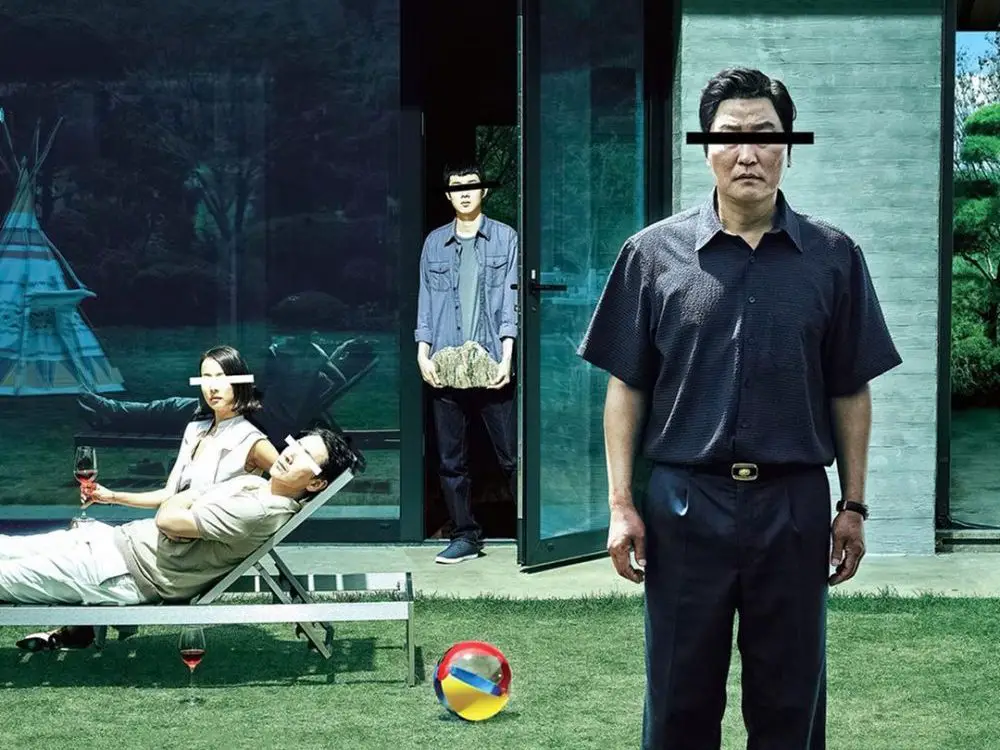It’s best to go into “Parasite,” the latest film from acclaimed South Korean filmmaker Bong Joon-ho, with no expectations. The Palme d’Or winner at the most recent Cannes film festival has garnered much attention since it’s U.S. release last month and for good reason.
“Parasite” follows the Kims, a family of four who live in a cramped, underground apartment fit for maybe two. With neither child attending university and both parents unemployed, the entire family is beginning to lose hope, to say the least.
That is until a childhood friend of oldest child Kim Ki-woo shows up bearing gifts, both physically in the form of a large rock (which essentially could’ve had “SYMBOL” painted across it) and through an offer: to take over for him as an English tutor for the daughter of a wealthy family, the Parks.
Though their make-up is the same (mother, father, son, daughter), the Parks exist in direct juxtaposition to the Kims. The patriarch is the CEO of a large information technology company, while Park Yeon-kyo, his wife, is a textbook rich stay-at-home mom. When Park Yeon-kyo takes a liking to Kim — who lied about his education in order to get the job — he quickly hatches a plan to get his entire family involved.
It’s wildly entertaining to watch as the Kims, much like the titular parasites, plant themselves in the Park estate — daughter Kim Ki-jeong as an art therapist, father Kim Ki-taek as a driver and mother Kim Chung-sook as the housekeeper. A good chunk of the film’s comedic aspects come from these scenes, like when Kim Ki-taek strategically uses a packet of hot sauce to convince Park that their previous housekeeper has come down with tuberculosis.
The Kims only reap the benefits of their work for a brief period of time, however, as the film undergoes a massive shift in tone around its midpoint. While it plays like a comedy for its first half, a doorbell ring after a particularly lighthearted scene catapults the film into the madness of its second act, the contents of which I will not be disclosing here because, and this is cliche, you just have to see it.
Under the direction of Bong, whose previous works include “Snowpiercer” and “Okja,” “Parasite” is a giant, larger-than-life story told with the delicacy of an indie movie and the tension of a big-studio horror. From the start, Bong and cinematographer Hong Kyung-pyo thrust you into the Kims’ world, filming their apartment in such a way that you find yourself feeling suffocated while seated in a multiplex.
It’s also a testament to Bong’s masterful direction that the film is able to feel like so many different things at once. “Parasite” is genre-bending at its finest, weaving between comedy, drama and horror with such ease that your emotions struggle to keep up.
The screenplay, penned by Bong and Han Jin-won, is razor sharp, fluctuating between smart takes on class relations to the iconic “Jessica, Only Child, Illinois, Chicago” rhyme which, and I’ve checked with the Academy, is in fact a front runner for the best original song Oscar.
The twists that act as transitions come sporadically and are genuinely shocking. Just when Bong gets you comfortable with the film in one way, things switch gears. It’s uncomfortable, but in the best way.
“Parasite” owes a lot to its ensemble, a solid cast of actors who perfectly capture the intricacies of each character, from the neurotic nature of Kim Ki-woo to the stoic composure of Park Dong-ik, the father of the Park family.
Standouts are easily Park So-dam, who nails the more nuanced role of Kim Ki-jeong, and Cho Yeo-jeong in a hilarious turn as Park Yeon-kyo. If the world is right, either of these women should land a supporting actress nomination à la Marina de Tavira for “Roma,” last year’s breakthrough foreign language feature.
Another aspect of “Parasite” that ties the film together is the set design. The Park house is stunning, a modern mansion that feels never-ending with its giant windows and lengthy staircases. The neighborhood where the Kims reside is less inviting but still a technically outstanding set that manages to capture the atmosphere of a South Korean street in a poorer part of town.
Aside from its visuals, “Parasite” is also a wildly important film that acts as fresh, witty and horrifying commentary on South Korean class relations. Bong does this through obvious actions and words, like the relationship the Parks have with their help, but also through a plethora of powerful symbols, most of which cannot be described without spoilers.
The most striking case of this is a particularly moving scene as the Kim family quite literally descends to their residence from the Parks, running through the rain in search of the comfort of their home, only to discover their house is completely destroyed by a flood.
All things considered “Parasite” is easily one of the best films of the year. Bong handles every aspect with expertise, and its ability to be so much at once while remaining so focused makes it a thrill to watch.
















